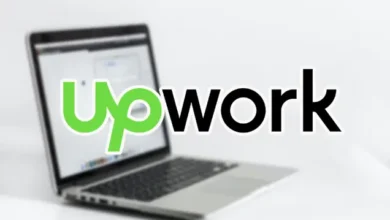Top Mistakes Beginners Make in Freelancing (And How to Avoid Them)
Discover the top freelancing mistakes beginners make and learn proven strategies to avoid them. Start your successful freelance career today .

The freelancing industry has experienced unprecedented growth, with over 73.3 million Americans working as freelancers in 2023. This surge in independent contractors represents a fundamental shift in how we approach work, offering unprecedented flexibility and earning potential. However, the path to successful freelancing is littered with common pitfalls that can derail even the most promising careers before they begin.
Mistakes Beginners Make in Freelancing are not just minor setbacks—they can cost you clients, damage your reputation, and significantly impact your income. The difference between thriving freelancers and those who struggle often comes down to avoiding these crucial errors early in their journey. Whether you’re a graphic designer, writer, web developer, or consultant, understanding these mistakes and their solutions can mean the difference between building a sustainable freelance business and returning to traditional employment.
Many new freelancers enter the market with unrealistic expectations, inadequate preparation, and a lack of business acumen. They focus solely on their technical skills while neglecting the entrepreneurial aspects that make freelancing successful. This comprehensive guide will explore the seven most damaging mistakes beginners make and provide actionable strategies to avoid them, setting you up for long-term success in the competitive world of independent work.
The stakes are high in today’s gig economy. With increased competition and evolving client expectations, freelancers must be strategic, professional, Mistakes Beginners Make in Freelancing and business-minded from day one. By learning from others’ mistakes and implementing proven solutions, you can fast-track your success and build a thriving freelance career that provides both financial stability and professional fulfillment.
1. Underpricing Services and Devaluing Your Worth Mistakes Beginners Make in Freelancing
The Race to the Bottom Trap
One of the most destructive freelancing mistakes is underpricing your services. Beginner freelancers often believe they must offer rock-bottom prices to compete, creating a dangerous race to the bottom that undermines the entire industry. This approach stems from a lack of confidence and understanding of market rates, leading to unsustainable business practices.
When you underprice your services, you attract clients who prioritize cost over quality, creating a cycle of demanding, low-paying work. These clients often have unrealistic expectations and provide poor feedback, damaging your reputation and motivation. Moreover, Mistakes Beginners Make in Freelancing working for below-market rates makes it impossible to invest in your business growth, professional development, or financial security.
Strategic Pricing Solutions
To avoid this freelance pricing mistake, research market rates extensively using platforms like Glassdoor, PayScale, and industry-specific surveys. Factor in your experience level, specialized skills, and the value you provide to clients. Remember that your rates should cover not just your desired salary but also business expenses, taxes, benefits, and profit margins.
Start with competitive but fair pricing and gradually increase your rates as you gain experience and testimonials. Create different pricing tiers based on project complexity and client budgets. Most importantly, communicate your value proposition clearly, focusing on the results you deliver rather than just the hours you work.
2. Poor Client Communication and Expectation Management
The Communication Breakdown
Ineffective communication ranks among the top reasons Mistakes Beginners Make in Freelancing fail. Many beginners underestimate the importance of clear, consistent communication, leading to misunderstandings, scope creep, and client dissatisfaction. Poor communication manifests in delayed responses, unclear project updates, and failure to set proper expectations from the outset.
This mistake often stems from treating freelancing as just doing the work rather than managing a client relationship. New freelancers may feel intimidated by clients or assume that good work speaks for itself. However, clients need regular updates, clear timelines, and proactive communication to feel confident in their investment.
Building Communication Excellence
Establish clear communication protocols from your first client interaction. Set expectations about response times, preferred communication channels, Mistakes Beginners Make in Freelancing and project update frequencies. Create templates for common communications like project proposals, status updates, and project completion notifications.
Implement a client onboarding process that covers project scope, timelines, deliverables, and revision policies. Use project management tools like Asana, Trello, Mistakes Beginners Make in Freelancing or Monday.com to provide clients with real-time project visibility. Schedule regular check-ins and always confirm understanding of client feedback before proceeding with revisions.
3. Inadequate Contract and Legal Protection

The Handshake Agreement Disaster
Many freelance beginners operate without proper contracts, relying on informal agreements that offer no legal protection. This approach can lead to scope creep, payment disputes, intellectual property issues, and complete project abandonment without compensation. Working without contracts is essentially gambling with your time and income.
The absence of clear terms and conditions leaves both parties vulnerable to misunderstandings. Clients may assume unlimited revisions, Mistakes Beginners Make in Freelancing while freelancers may expect additional compensation for extra work. Without written agreements, resolving disputes becomes nearly impossible, often resulting in lost income and damaged professional relationships.
Creating Bulletproof Agreements
Develop comprehensive freelance contracts that cover project scope, deliverables, timelines, payment terms, revision policies, and intellectual property rights. Mistakes Beginners Make in Freelancing Include clauses for late payments, project cancellations, and scope changes. Consider using contract templates from resources like Freelancers Union or consulting with legal professionals for complex projects.
Always require signed contracts before beginning work, regardless of project size or client relationship. Use digital signature tools like DocuSign or HelloSign to streamline the process. Clearly outline your refund and cancellation policies, Mistakes Beginners Make in Freelancing and include a kill fee clause for projects terminated early by the client.
4. Inconsistent Marketing and Self-Promotion
The Invisible Freelancer Syndrome
Many talented freelancers struggle with consistent self-promotion, believing their work quality alone will attract clients. This “build it and they will come” mentality leads to feast-or-famine cycles where freelancers oscillate between being overwhelmed with work and desperately searching for new clients.
Freelance marketing requires ongoing effort and strategic planning. Inconsistent promotion efforts result in unpredictable income streams and limit growth opportunities. Many beginners also make the mistake of stopping marketing efforts when they’re busy, creating gaps in their pipeline that lead to income droughts.
Developing a Marketing System
Create a comprehensive freelance marketing strategy that includes multiple channels: professional website, social media presence, content marketing, networking events, and referral programs. Develop a content calendar that showcases your expertise through blog posts, case studies, and portfolio updates.
Dedicate specific time each week to marketing activities, even when you’re busy with client work. Build an email list of potential clients and past customers, Mistakes Beginners Make in Freelancing sending regular newsletters with valuable insights and updates. Leverage platforms like LinkedIn for professional networking and consider speaking at industry events to establish thought leadership.
5. Neglecting Financial Management and Business Planning

The Feast-or-Famine Cash Flow
Poor financial planning is a critical mistake that can destroy otherwise successful freelance careers. Many beginners fail to account for irregular income, business expenses, taxes, and the need for emergency funds. They often spend as they earn, leaving themselves vulnerable during slow periods or unexpected expenses.
Inadequate financial management also includes failing to track business expenses, missing tax deductions, and not separating personal and business finances. These oversights can lead to significant financial stress and legal complications, particularly during tax season.
Building Financial Stability
Establish separate business and personal bank accounts immediately. Create a detailed budget that accounts for irregular income patterns, Mistakes Beginners Make in Freelancing setting aside a percentage of each payment for taxes, business expenses, and emergency funds. Many successful freelancers follow the 50/30/20 rule: 50% for living expenses, 30% for taxes and business costs, and 20% for savings and investments.
Use accounting software like QuickBooks, FreshBooks, or Wave to track income and expenses accurately. Set up automatic transfers to tax and emergency savings accounts. Consider working with an accountant specializing in freelance businesses to optimize your tax strategy and ensure compliance with all regulations.
6. Lacking Professional Boundaries and Work-Life Balance
The Always-Available Trap
New freelancers often believe they must be available 24/7 to succeed, leading to burnout and decreased productivity. This mistake stems from fear of losing clients and misunderstanding what professional availability means. Constantly checking emails, accepting last-minute requests, and working excessive hours ultimately harm both your health and business quality.
Poor work-life balance also manifests in accepting every project, regardless of fit or profitability. This desperation-driven approach leads to working with difficult clients, taking on projects outside your expertise, and compromising your standards to meet unrealistic deadlines.
Establishing Healthy Boundaries
Define clear working hours and communicate them to clients upfront. Create an emergency contact policy for truly urgent situations while maintaining boundaries for routine communications. Use auto-responders to set expectations about response times and include your working hours in your email signature.
Learn to say no to projects that don’t align with your goals, values, or expertise. Develop criteria for ideal clients and projects, using these as filters for new opportunities. Schedule regular time off and stick to it, understanding that rest and recreation improve your creativity and productivity.
7. Insufficient Skill Development and Industry Adaptation
The Static Skillset Stagnation
The freelance market evolves rapidly, with new technologies, trends, and client expectations emerging constantly. Freelancers who fail to continuously update their skills quickly become obsolete. This mistake often occurs when freelancers become comfortable with their current abilities and stop investing in professional development.
Technology advancement, changing industry standards, and evolving client needs require constant adaptation. Freelancers who don’t stay current with trends may find their services becoming less relevant, leading to decreased demand and lower rates.
Committing to Continuous Growth
Allocate time and budget for ongoing professional development. This includes formal education, online courses, industry certifications, and attending conferences or workshops. Follow industry leaders, subscribe to relevant publications, and participate in professional communities to stay informed about trends and opportunities.
Regularly assess your skill gaps and create learning plans to address them. Consider diversifying your service offerings based on market demands while maintaining your core competencies. Set aside a percentage of your income for education and professional development, treating it as a necessary business investment rather than an optional expense.
Also Read: How to Start Freelancing with No Experience: Step-by-Step Guide
Conclusion
Avoiding these seven critical Mistakes Beginners Make in Freelancing can significantly accelerate your path to success in the competitive world of independent work. Remember that building a successful freelance business requires more than just technical skills—it demands business acumen, professional communication, and strategic thinking.
The key to long-term success lies in treating your freelance work as a legitimate business from day one. This means implementing proper systems, maintaining professional standards, and continuously investing in your growth and development. While the learning curve can be steep, avoiding these common pitfalls will position you ahead of many competitors who continue to make these fundamental errors Mistakes Beginners Make in Freelancing.
Start implementing these solutions gradually, focusing on one area at a time rather than trying to address everything simultaneously. With patience, persistence, and strategic action, you can build a thriving freelance career that provides both financial stability and professional fulfillment.





